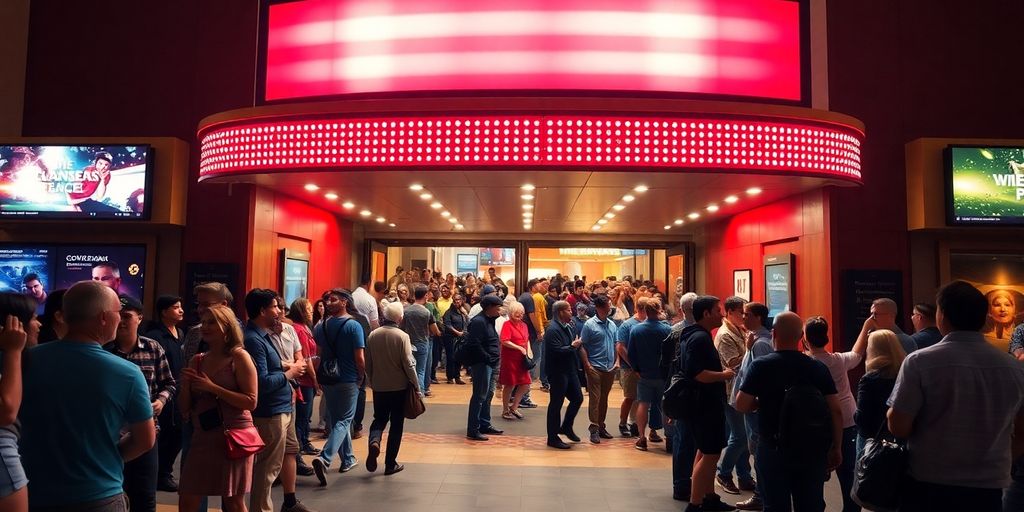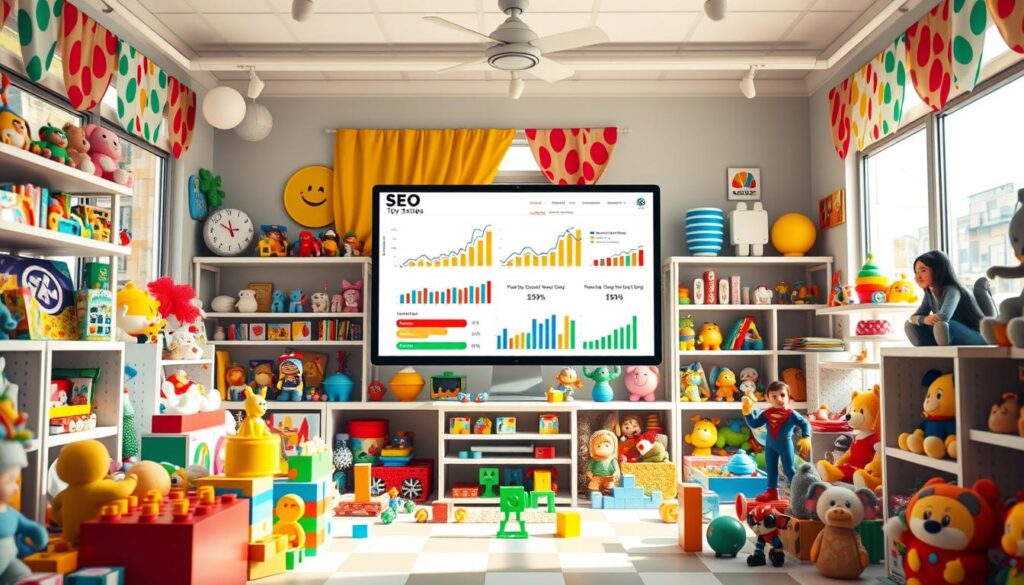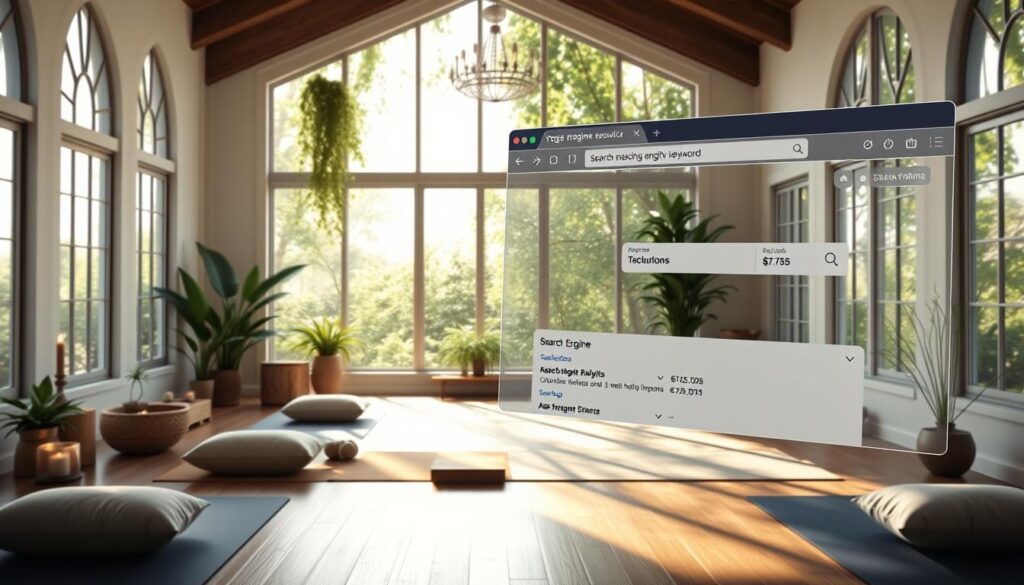Ever wonder how people find out about the latest movie releases or decide where to watch them? Well, it’s not just luck. It’s all about SEO, or search engine optimization. For movie theaters, SEO is like a secret weapon. It helps them get noticed online, attract more moviegoers, and sell more tickets. In today’s digital age, having a strong online presence is key, and that’s where SEO comes in. So, what is SEO for movie theaters? Let’s break it down and see how it can make a difference.
Key Takeaways
- SEO helps movie theaters attract new customers by improving online visibility.
- Cost-effective marketing strategy compared to traditional advertising methods.
- Local SEO is crucial for driving foot traffic to theaters.
- A mobile-friendly website enhances user experience and boosts search rankings.
- Engaging content like blogs and videos keeps moviegoers interested and informed.
Understanding The Importance Of SEO For Movie Theaters
Attracting New Customers
In today’s digital world, people turn to the internet for everything, including deciding which movie to watch and where to watch it. SEO helps movie theaters appear in search results, making it easier for potential customers to find them. When someone searches for a movie or showtimes, having your theater pop up first can make all the difference. Without SEO, you risk losing out to competitors who are more visible online.
Cost-Effective Marketing
Traditional advertising methods like newspaper ads or flyers can be costly. With SEO, you can reach a larger audience without breaking the bank. It’s a more affordable way to market your theater, targeting those actively searching for movie experiences. By investing in SEO, theaters can save money while still drawing in crowds.
Enhancing Online Visibility
Being visible online is crucial. Search engines are often the first stop for moviegoers planning their next outing. SEO ensures your theater is easy to find, whether someone is searching on a computer or a smartphone. The more visible you are, the more likely people will choose your theater over others. Consistent SEO efforts can lead to increased foot traffic and ticket sales.
Effective SEO Strategies For Movie Theaters
Local Listings Optimization
Getting your theater noticed means being where the moviegoers are searching. Registering your theater with platforms like Google My Business is a game-changer. When folks search for showtimes, they often look for the nearest options. By having your theater listed, you increase your chances of showing up on that crucial map section of search results. Make sure to include all the essential details like your address, phone number, and website. If possible, add showtimes and special features like reserved seating or accessibility options.
Mobile-Friendly Design
People are glued to their phones, so your website better be ready for them. A mobile-friendly site is not just a nice-to-have; it’s a must. Responsive design ensures your site looks good and works well on any device. You don’t want to lose a potential customer just because they couldn’t navigate your site on their smartphone.
Content Creation Techniques
Creating content that grabs attention is key. Write blogs about upcoming releases or behind-the-scenes tidbits that movie buffs will love. Use keywords that moviegoers are likely to search for, like "new releases" or "theater near me." Consider adding videos or images to make your content pop. It’s not just about writing; it’s about making your site a fun place to visit. Keep an eye on how your content is doing, and tweak it based on what gets the most attention.
Leveraging Local SEO For Increased Foot Traffic
Utilizing Geographic Keywords
Using geographic keywords is like putting a big, friendly sign outside your theater that says, "Hey, locals, we’re here!" By including the name of your city, neighborhood, or even nearby landmarks in your website’s content, you make it easier for search engines to connect you with people nearby. Most folks search for movie theaters by location, so having these keywords can give you a serious edge. Think about phrases like "best cinema in [Your City]" or "movie showtimes near [Landmark]." It’s all about being the first option that pops up when someone nearby is looking for a night out at the movies.
Registering With Google My Business
Google My Business is your theater’s online business card. By registering, you ensure that when someone searches for movie theaters in your area, they find you with ease. You can add all sorts of important details like your address, opening hours, and even photos of your theater. Plus, customer reviews here can really shine. When people see a bunch of positive reviews, they’re more likely to choose your theater over others. It’s not just about being seen; it’s about building trust and a good reputation.
Creating Local Content
Creating content that resonates with your local audience is key. This could be blog posts about local events or partnerships with nearby businesses. You might even feature articles about how your theater is involved in the community or special screenings that cater to local tastes. Local content is not only engaging but also helps in boosting your search engine rankings. It’s like telling search engines, "We are a part of this community," which can help you stand out in local searches.
By focusing on local SEO, movie theaters can not only increase their visibility but also build a strong community presence. This approach not only drives foot traffic but also fosters a loyal customer base that feels connected to your theater.
Building A Mobile-Friendly Website Experience
Creating a website that works well on mobile devices is super important these days. More and more people use their phones to check movie times and buy tickets. If your site isn’t easy to use on a phone, you might lose customers. Let’s dive into what makes a great mobile site.
Responsive Design Principles
A responsive design means your website looks good on any device, whether it’s a phone, tablet, or computer. It’s all about flexibility. The layout should adjust automatically to fit different screen sizes. This way, users don’t have to zoom in and out to read text or click buttons. Using flexible grids and images helps keep everything looking sharp.
User Experience Considerations
When people visit your site, they should find it easy to use. Think about how fast your pages load and how simple the navigation is. Nobody wants to wait forever for a page to open or struggle to find showtimes. Make sure buttons are big enough to tap easily and that important info is front and center. A smooth, hassle-free experience keeps people coming back.
Importance Of Fast Loading Times
Speed is key. If your site takes too long to load, potential customers might just leave and go somewhere else. Optimize images and use efficient coding practices to make sure your site loads quickly. Consider using a content delivery network (CDN) to speed things up even more. Remember, every second counts!
A fast, responsive website isn’t just nice to have—it’s a must in today’s digital world. It can mean the difference between gaining a loyal customer and losing one to a competitor.
To make your movie theater website stand out, consider using mobile-friendly theatre website templates from Mobirise AI. They offer easy drag-and-drop customization, which can really help in creating an engaging online platform.
Creating Engaging Content For Moviegoers

Blogging About Upcoming Releases
Blogging can be a great way to keep moviegoers in the loop about what’s hitting the screens next. Write posts that are not just about the movie synopsis but dive into interesting behind-the-scenes tidbits, actor interviews, and fun facts. A well-written blog can make your audience feel like they’re getting insider info, which keeps them coming back for more.
- Highlight unique aspects of the film.
- Discuss the director’s vision or style.
- Share thoughts on the movie’s soundtrack or special effects.
Utilizing Social Media
Social media platforms are like a megaphone for your theater. It’s not just about posting showtimes. Think about sharing quirky content like memes related to movies, polls on favorite characters, or even short video clips from past events at your theater. Engagement is key, so respond to comments and start conversations.
- Post regular updates and interact with followers.
- Use stories and reels for quick, engaging content.
- Create themed posts around movie genres or events.
Incorporating Video Content
Video content is a powerhouse for engagement. Short clips or teasers about upcoming films can be super effective. You might even consider making short videos showcasing your theater’s ambiance or special screenings. Videos help in capturing attention quickly and can be shared across platforms.
"Videos can transform the way audiences perceive your theater, offering a glimpse into the experience you provide."
Consider creating a series of short behind-the-scenes videos or interviews with staff, which can add a personal touch and make your theater feel more relatable.
For more insights on crafting a successful marketing strategy tailored for film festivals, consider the unique elements that make your theater stand out and how they can be highlighted in your content strategy.
Tracking SEO Success For Movie Theaters
Using Analytics Tools
To really know how well your SEO is doing, you gotta dive into the numbers. Tools like Google Analytics are a must-have. They help you see who’s visiting your site, where they’re coming from, and what they’re doing once they get there. It’s like having a backstage pass to your own show. You can track conversions from local searches, which is crucial for movie theaters wanting to pull in those local crowds.
Monitoring Keyword Rankings
Keeping an eye on how your keywords are performing is another biggie. Using tools like SEMrush or Moz, you can check if your chosen keywords are actually bringing people to your site. If your rankings are slipping, it might be time to tweak your strategy. Maybe your competitors are stepping up their game, or maybe search trends are shifting. Either way, staying on top of this helps you adjust before it’s too late.
Adjusting Strategies Based On Data
Once you have all this data, the next step is to use it wisely. Data-driven decisions can make or break your SEO success. If you notice certain keywords aren’t performing, switch them up. If a particular type of content is getting more love, create more of it. It’s all about being flexible and responsive to what the numbers are telling you. Remember, your SEO strategy isn’t set in stone; it’s a living, breathing thing that needs regular updates to stay ahead of the curve.
In the fast-paced world of movie theaters, where new releases are constantly changing the landscape, having a solid grasp on your SEO performance can be the difference between a full house and empty seats. Use your analytics to guide your next steps and keep your theater bustling with moviegoers.
Harnessing Paid Advertising Alongside SEO

Targeting Specific Audiences
Paid advertising lets movie theaters reach the right folks at the right time. By diving into data from past campaigns, theaters can figure out who’s most likely to buy a ticket. This means ads can be crafted specifically for those groups, making them more effective. Targeted ads ensure that marketing dollars aren’t wasted on people who aren’t interested in catching a flick.
Crafting Engaging Ads
Creating ads that grab attention can be a bit of an art. It’s all about making sure the message is clear and enticing. Movie theaters need to think about what makes their audience tick. Is it the latest blockbuster or maybe a cozy atmosphere? Whatever it is, ads should highlight that. A well-crafted ad not only catches the eye but also makes people want to know more.
Measuring Ad Performance
Once the ads are out there, it’s crucial to keep an eye on how they’re doing. Tracking performance helps theaters understand what’s working and what’s not. This might mean looking at click-through rates or conversions. If something’s not clicking, it might be time to tweak the strategy. Regularly checking in on ad performance ensures that every dollar spent is working hard to bring in more moviegoers.
Mixing paid ads with SEO strategies offers a powerful combo for theaters. While SEO builds a solid foundation by boosting organic visibility, paid ads can deliver quick results by reaching specific audiences. This dual approach can lead to a more robust online presence and, ultimately, more ticket sales.
Conclusion
In the end, SEO is like the secret sauce for movie theaters wanting to stand out in the digital world. It’s not just about showing up in search results; it’s about being the first choice when someone is deciding where to catch the latest flick. With everyone glued to their phones and computers, having a solid online presence is more important than ever. By using SEO, theaters can make sure they’re not just another option, but the go-to spot for movie lovers. So, if you’re running a theater, it’s time to get on board with SEO and make sure you’re the first name people see when they’re planning their next movie night.
Frequently Asked Questions
What does SEO mean for movie theaters?
SEO, or Search Engine Optimization, helps movie theaters appear higher in online search results. This means more people can find out about the theater and its showtimes when searching for movies online.
How can SEO benefit a movie theater?
SEO can bring more visitors to a theater’s website, increase ticket sales, and help the theater stand out from competitors. It’s a cost-effective way to reach more moviegoers.
What are some simple SEO strategies for movie theaters?
Movie theaters can use local SEO by including their city or neighborhood in their website content, make sure their site is mobile-friendly, and create engaging content about upcoming movies.
Why is local SEO important for movie theaters?
Local SEO helps movie theaters attract nearby customers by making sure they appear in local search results. This is crucial for bringing in people who are looking for a theater close to them.
How do movie theaters track their SEO success?
Theaters can use tools like Google Analytics to see how many people visit their site, check which keywords are working, and adjust their strategies based on this data.
Can paid ads work with SEO for movie theaters?
Yes, using paid ads alongside SEO can help theaters reach more people. Paid ads can target specific groups, ensuring that the right audience sees them, which can lead to more ticket sales.






